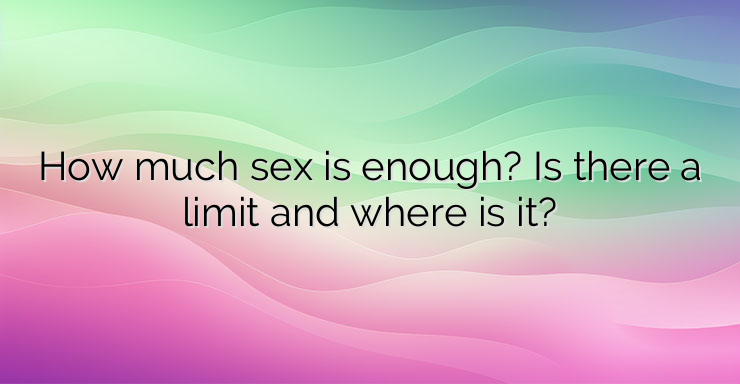A great many factors can affect the sexual abilities of men and women and hinder their normal sex life. This is the reason why many couples, especially those who have shared a bed for a longer period of time, not only fail to reach satisfactory levels of sex, but even lose interest in intimate communication. A recent study shows that many women lose interest in sex within the first year of being intimate with a partner. However, how are things when there are no obstacles to the sexual drives of both partners? Is there a scale to gauge whether they are having sex often enough? And is frequency even the most important aspect of sex? Even if they practice regular and completely satisfying sex, men’s and women’s perspectives on these issues often differ. A study by Canadian scientists from the University of Toronto shows why. The data is interesting and once again proves that the boundaries in sex are only imaginary, especially in terms of its frequency. The study was conducted in order to establish the truth of the statement that the more regularly they have sex, the happier people are. The results show that the statement is true, but only to a certain extent. Two main groups of couples were studied. The first includes those who say they have sex more often than once a week. In the second group are the couples where sexual contacts are less frequent. It was found that the partners of the first group experience greater satisfaction with their cohabitation. However, the frequency of sexual intercourse does not directly determine the degree of this satisfaction. That is, couples who have sex several times within a week are no happier than those who have sex only once during that period. NEWS_MORE_BOX The study shows that this data is valid at any age, whether it is tracking a younger pair of partners or those who have been together for many years. The researchers pay attention to one more factor – whether the desire for more frequent sexual contacts improves the emotional state of the man and the woman in a couple. And doesn’t this put partners under additional stress, especially when this desire remains unsatisfied in the conditions of the hectic modern everyday life… The gender division of the researched participants shows that 57% of men have a desire for maximum frequent sexual communication with their partner. For women, the percentage is significantly lower – around 18%. These data, compared with those mentioned above, are the basis of the interesting conclusion made by the scientific team. It turns out that much more important than the frequency of sex is the reciprocity and commitment of the man and the woman to him. It is these factors that matter most for the emotional satisfaction of both partners.


Leave a Reply